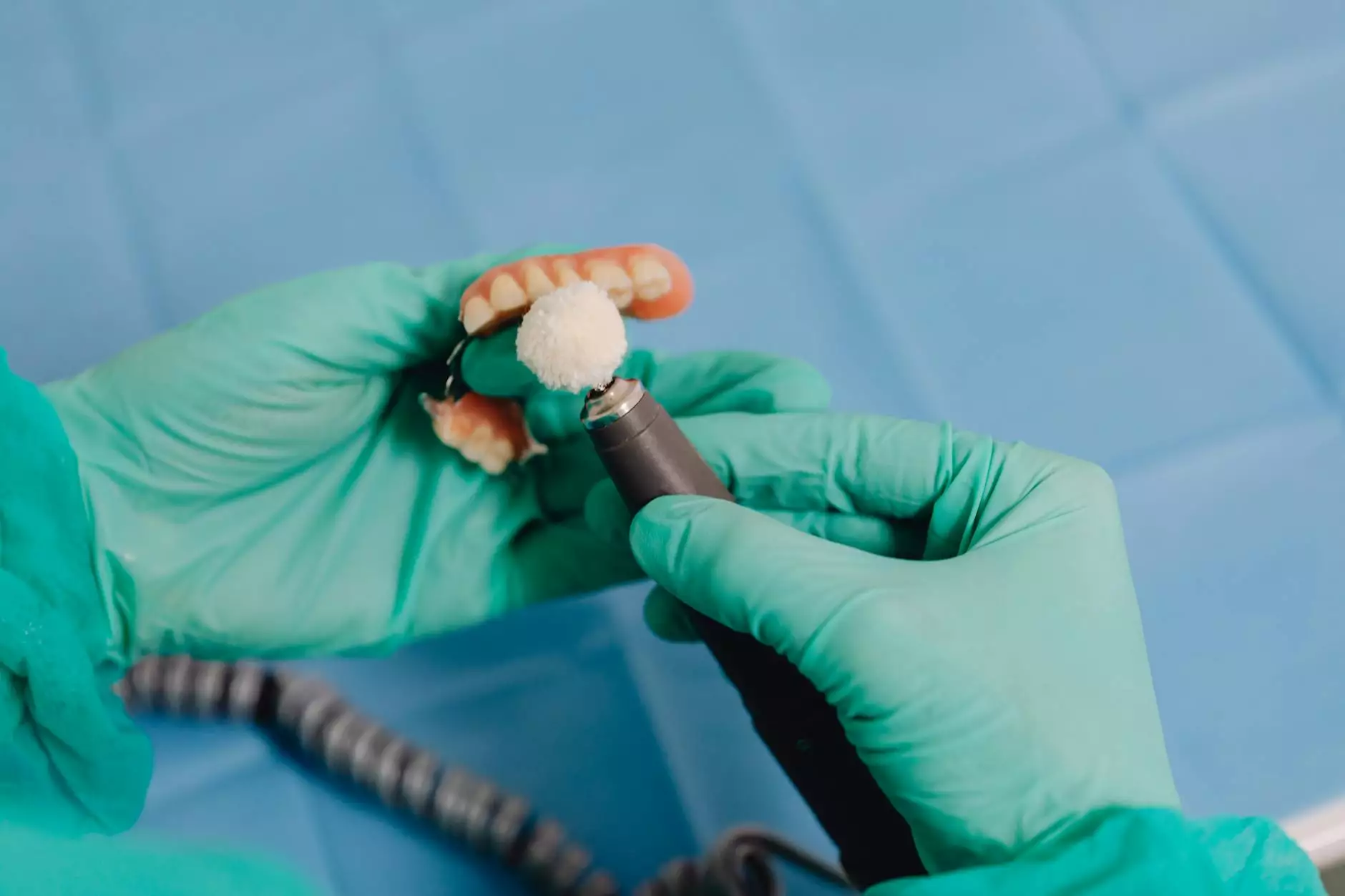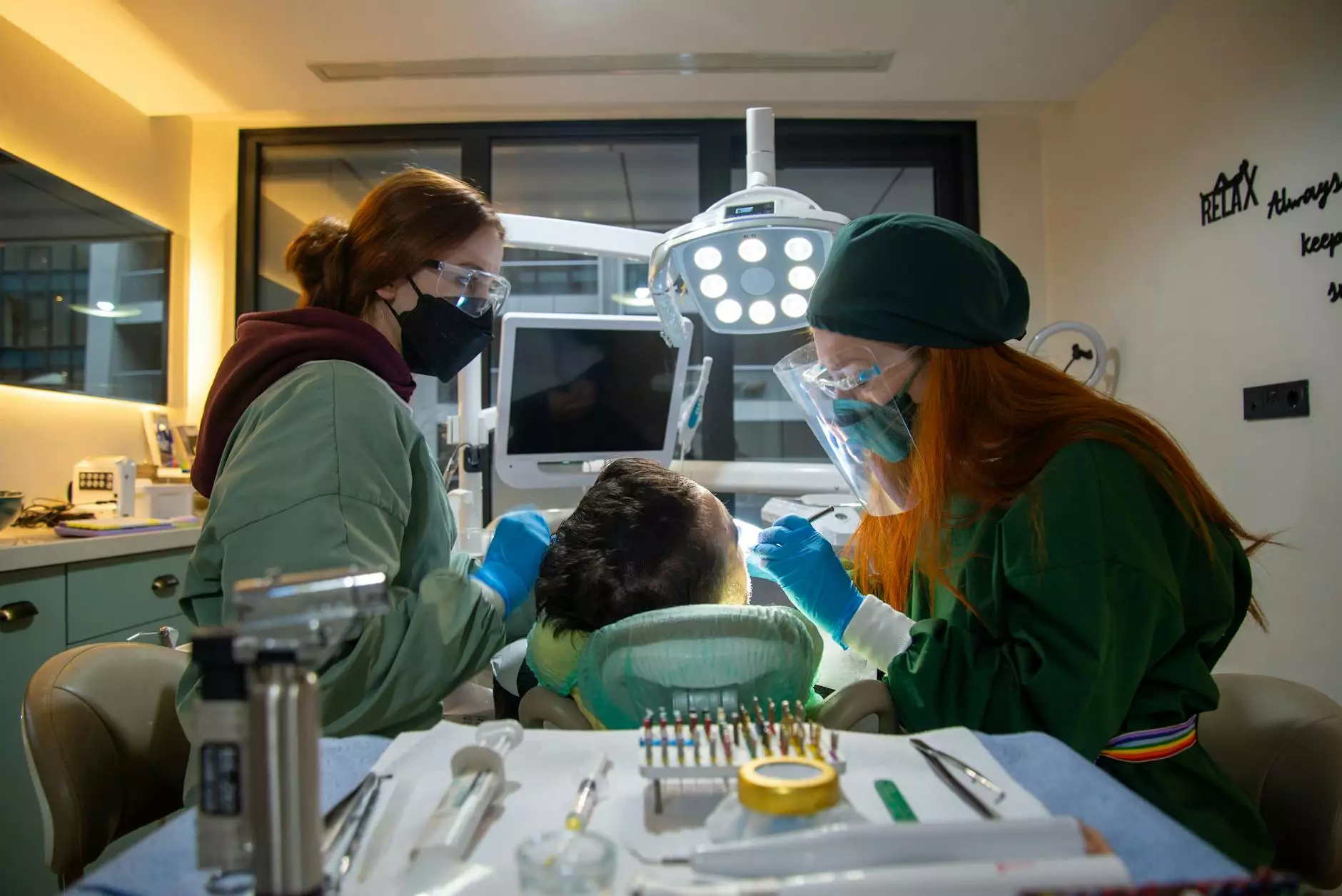Understanding Implant Supported Dentures: A Comprehensive Guide

In the realm of restorative dentistry, implant supported dentures have emerged as a revolutionary option for patients seeking a permanent solution to missing teeth. As a unique fusion of traditional denture technology and modern dental implants, these prosthetics offer unmatched stability and comfort. This article delves into the intricate details surrounding implant supported dentures, shedding light on their benefits, procedure, maintenance, and much more.
What Are Implant Supported Dentures?
Implant supported dentures are a type of dental prosthesis anchored by dental implants. Unlike conventional dentures that rely solely on the gums for support, these dentures are securely attached to implants embedded in the jawbone. This innovative approach helps to prevent the common issues associated with traditional dentures, such as slippage, discomfort, and bone loss.
The Evolution of Dentures
Dental prosthetics have come a long way since their inception. Traditional dentures have been used for centuries, evolving in design and materials. The introduction of dental implants in the late 20th century revolutionized the way dentists approached the loss of teeth. Today, with advanced technology and improved techniques, implant supported dentures offer an enhanced solution to tooth restoration.
Benefits of Implant Supported Dentures
The advantages of choosing implant supported dentures over traditional options are numerous:
- Stability: The implants provide a solid foundation, eliminating the embarrassing slips that can occur with conventional dentures.
- Comfort: Patients often find that these dentures are more comfortable due to their secure attachment, allowing for a more natural feel.
- Bone Preservation: Implants help maintain the jawbone, preventing the bone loss typically associated with missing teeth.
- Improved Oral Health: Maintaining better oral hygiene is easier as the implants can be cared for similarly to natural teeth.
- Enhanced Quality of Life: With their improved functionality, patients can enjoy a wider range of foods and speak more clearly.
The Process of Getting Implant Supported Dentures
Undergoing treatment for implant supported dentures involves several essential steps:
1. Initial Consultation
Your journey begins with a thorough evaluation by a qualified dentist. They will assess your oral health, jawbone density, and suitability for implants.
2. Treatment Planning
Once deemed a suitable candidate, a personalized treatment plan will be crafted, outlining the procedure, time frame, and costs involved.
3. Implant Placement
During a surgical procedure, dental implants—typically made of titanium—are inserted into the jawbone. This process may vary in complexity depending on the number of implants required.
4. Healing Period
A healing period, often lasting several months, is crucial for the implants to integrate with the bone, providing a solid foundation for the overdenture.
5. Abutment Placement
Once healed, an abutment (a connector) is attached to each implant. This piece will hold the denture securely in place.
6. Final Denture Fitting
The final step involves taking impressions for your custom dentures, which are designed to match your natural teeth in shape, color, and size.
Types of Implant Supported Dentures
There are primarily two types of implant supported dentures: bar-retained and plate-retained.
1. Bar-Retained Dentures
This system involves a metal bar that is fixed to the implants. The dentures clip onto this bar, offering stability and support. This design allows for some flexibility if adjustments are needed over time.
2. Plate-Retained Dentures
In this design, the dentures have specific attachments that snap onto the implants. This option is often chosen for its simplicity and ease of use.
Who is a Candidate for Implant Supported Dentures?
Candidates for implant supported dentures generally include individuals who:
- Have lost most or all of their teeth in one or both arches.
- Possess adequate jawbone density to support implants or are willing to undergo bone grafting.
- Are generally in good health and can undergo surgical procedures.
- Their personal oral care habits are appropriate to maintain dental implants.
Maintaining Your Implant Supported Dentures
Proper maintenance is key to the longevity and functionality of implant supported dentures.
- Regular Dental Check-Ups: Schedule routine visits to your dentist for exams and cleanings.
- At-Home Care: Maintain excellent oral hygiene by brushing and flossing regularly, paying special attention to the areas around the implants.
- Avoid Hard Foods: Minimize the risk of damaging your dentures by avoiding overly hard or sticky foods.
- Watch for Signs of Trouble: Keep an eye out for any changes in comfort or feel, as these can indicate issues with the implants or dentures.
The Financial Aspect of Implant Supported Dentures
The cost of implant supported dentures can vary widely based on factors such as the number of implants required, the location of the dental practice, and whether any additional procedures (like bone grafting) are necessary. Generally speaking, while the initial investment is higher than that of traditional dentures, the long-term benefits often outweigh the costs. Many dental insurance plans may cover a portion of the expenses, so it’s advisable to consult with your provider to explore your options.
Comparison with Traditional Dentures
When comparing implant supported dentures with traditional dentures, several differences stand out:
- Stability: Implants offer a more secure fit than traditional dentures.
- Bone Health: Implants prevent bone loss, whereas traditional dentures do not address the underlying bone structure.
- Comfort: Most patients report less discomfort with implants than with conventional options.
Real Patient Experiences
Numerous patients have shared their journeys toward getting implant supported dentures. Many report dramatic improvements not only in function but also in confidence and quality of life. Patients frequently express relief at regaining the ability to eat their favorite foods without fear of their dentures slipping.
Conclusion
In summary, implant supported dentures offer an innovative solution for individuals seeking a durable, comfortable, and effective tooth replacement option. Given the numerous benefits, including stability, preserved bone health, and enhanced quality of life, they represent a holistic approach to dental restoration. If you are considering this option, reaching out to a certified dental professional at 57-dental.com can guide you through your journey to a confident smile.









